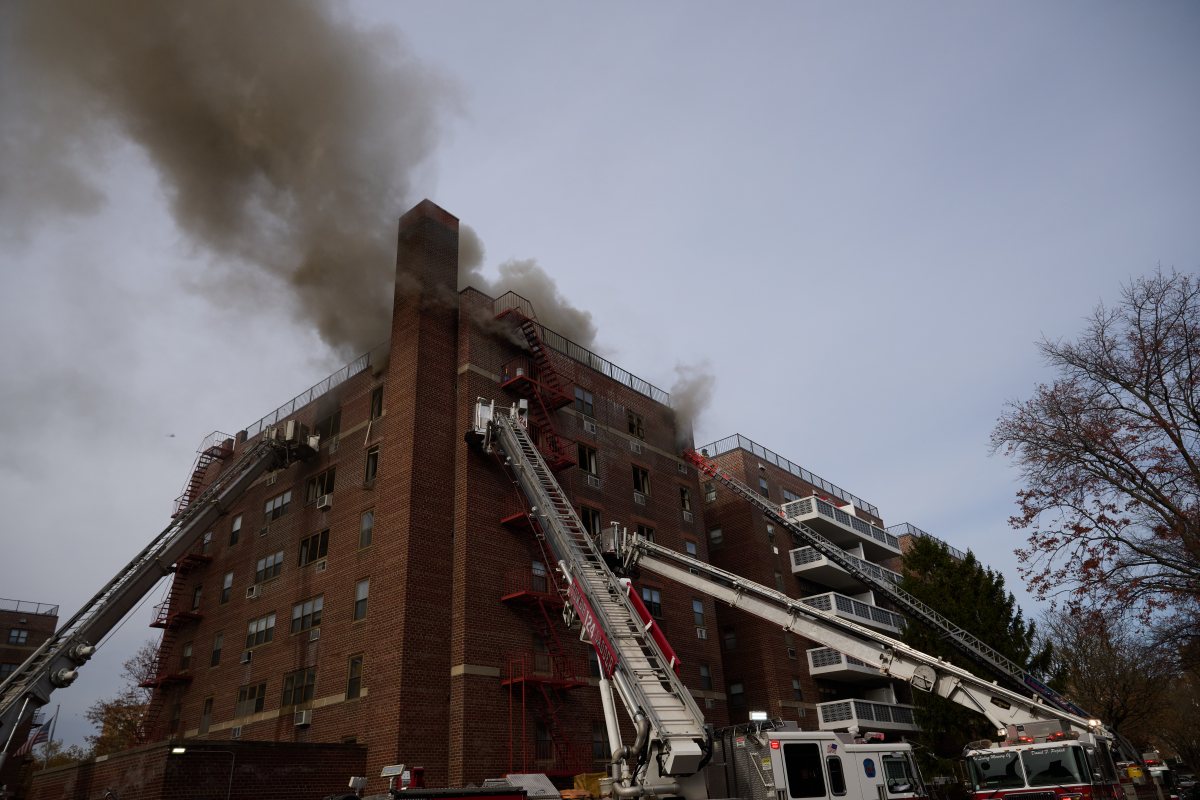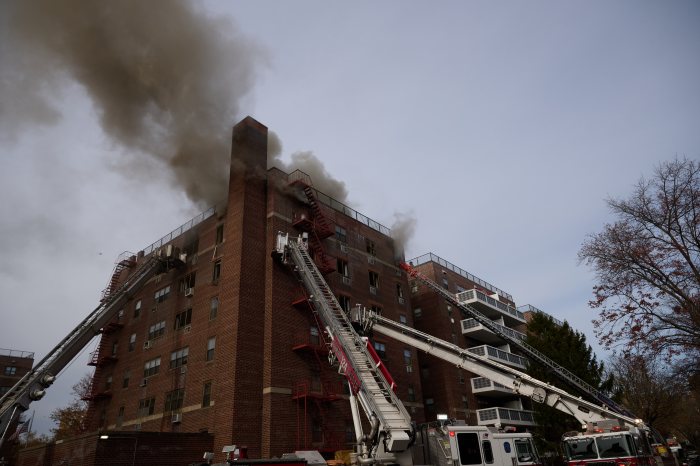By Albert Amateau
Community Board 2 is drafting its official response to Rudin Management’s proposal to redevelop the former St. Vincent’s Hospital property.
The full board is expected to adopt its response to the proposed Rudin rezoning at its Thurs., Oct. 20, monthly meeting.
The next stop in the review process is the Borough President’s Office, where all of Manhattan’s community boards will have a say on it. The City Planning Commission then holds a hearing and can make recommendations for changes. The City Council has a final say in the process.
At C.B. 2 committee meetings over the past few days, members listed their concerns about the impact on the Greenwich Village Historic District of adding 450 new luxury apartments on the east side of Seventh Ave. and of a new comprehensive community health center with a free-standing emergency department on the avenue’s west side.
On Mon., Oct. 17, members of the board’s Environmental, Public Health and Safety Committee focused on construction impacts on fragile historic buildings. Members were concerned about traffic generated by new apartments, as well as construction impact on P.S. 41, the elementary school on W. 11th St. at Sixth Ave., and on its school playground.
Committee members said the environmental impact statement for the project did not adequately account for the elementary school in its analysis of the construction impact.
Committee members were also concerned about the project’s impact on water and sewer resources.
However, John Gilbert, Rudin’s chief operating officer, replied that the proposed 450 apartments would have much less impact on resources than the 700-bed St. Vincent’s Hospital had on the neighborhood before it closed last year.
Melanie Meyers, Rudin’s land-use lawyer, assured the meeting that the developer would execute an agreement to filter diesel-fuel particles during construction and would file a plan with the Landmarks Preservation Commission to protect historic buildings near the residential project between W. 11th and 12th Sts.
But Sigurd Burton, a member of the C.B. 2 environmental committee, said that although there is a 1988 Department of Buildings technical procedure for protecting historic buildings, there is no enforcement provision for shutting down construction that violates the rules and endangers fragile buildings.
Burton said residents in her building on West Broadway between Grand and Canal Sts. had to spend more than $100,000 for an engineering survey and testing to protect it three years ago when Soho Mews was under construction.
Gilbert assured the committee that Rudin was experienced in construction near or in historic districts. He said that a gut rehab underway at 130 W. 12th St., with major excavation in the rear yard, has not provoked any complaints from neighbors. Rudin has also developed a project near a fragile Broadway theater, Gilbert said.
Rudin acquired 130 W. 12th St. from St. Vincent’s 18 months ago but is redeveloping it separately from the St. Vincent’s residential-conversion project.
The closing last year of the 160-year-old hospital was dramatized in a guerilla theater demonstration at the Oct. 17 meeting. Members of the Coalition for a New Village Hospital, a group that insists on a new acute-care, full-service hospital to replace St. Vincent’s, entered the meeting room dressed in bandages with simulated blood stains, shouting, “Help! Help! We need a hospital not luxury condos!”
The demonstrators denounced the proposed comprehensive health center and emergency department as a “two-bed hospital” because it will have only two overnight beds. Patients who need longer hospital stays will be moved to other hospitals.
James Fouratt, a coalition member, said he anticipated a rat problem during construction of the residential project.
“We’ve already seen a lot more rats since the redevelopment of 130 W. 12th St. began,” said Fouratt, who lives near W. 11th St.
At a Tues., Oct. 18, meeting, the board’s Social Services and Education Committee adopted a recommendation calling on the full board to “strongly oppose” Rudin’s proposal to rezone the east campus for a luxury residential complex.
“The district has a much greater and more urgent need for new affordable housing and for new school space than for more luxury condos that will dramatically change the diverse character of our neighborhood,” the committee recommendation said.
The committee acknowledged Rudin’s help in securing space for a 563-seat elementary school in the Foundling Hospital building on Sixth Ave at W. 17th St.
But the committee noted that the public school space was proposed before the latest version of the residential project was conceived. While Rudin Management executives have cited the Foundling space as an indication that the developer is sensitive to the needs of the neighborhood, the guarantee was made without reference to the project. The School Construction Authority has agreed to convert the Foundling space into public school space.
The committee was also disappointed that Rudin couldn’t say how many bedrooms would be in the 450 apartments. The committee wants the information in order to estimate the number of children moving into the neighborhood and seeking schools in the next few years.


































